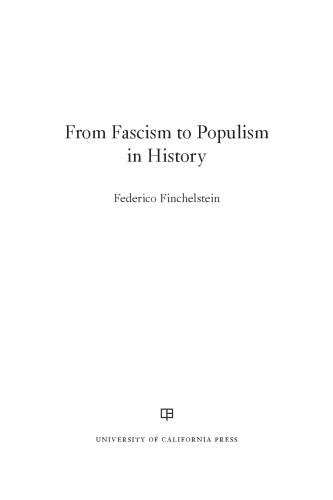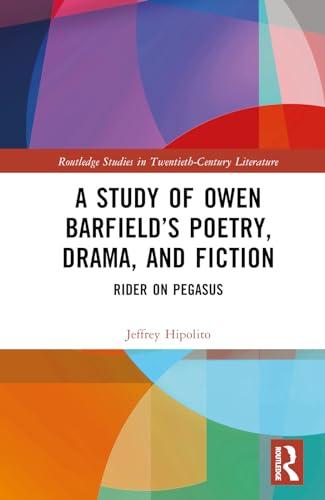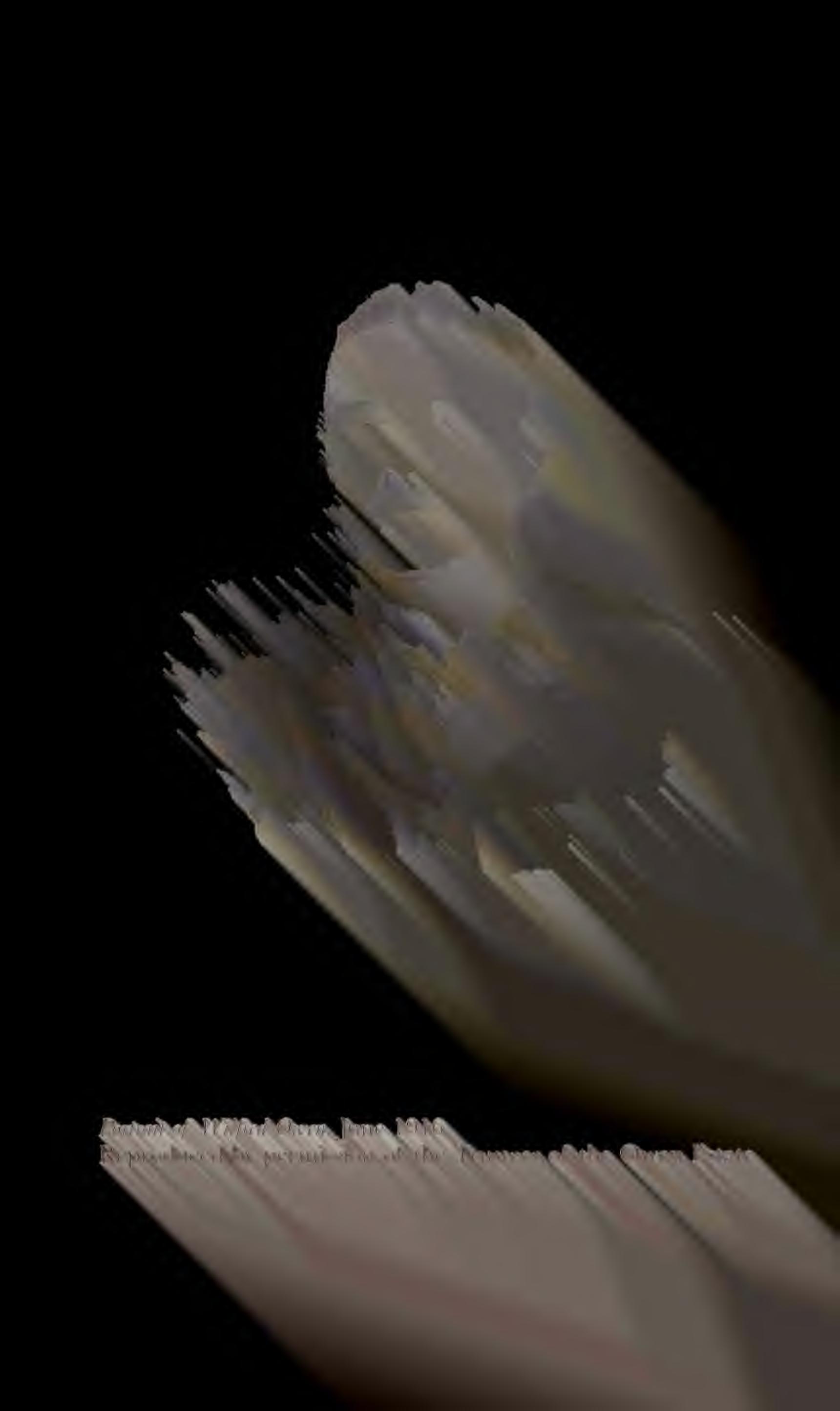John Purkis
Visit to download the full and correct content document: https://textbookfull.com/product/a-preface-to-wilfred-owen-1st-edition-john-purkis/

More products digital (pdf, epub, mobi) instant download maybe you interests ...

John Owen and English Puritanism : experiences of defeat 1st Edition Gribben
https://textbookfull.com/product/john-owen-and-englishpuritanism-experiences-of-defeat-1st-edition-gribben/

From Fascism to Populism in history with a new preface First Paperback Edition Finchelstein
https://textbookfull.com/product/from-fascism-to-populism-inhistory-with-a-new-preface-first-paperback-edition-finchelstein/

Economics as Applied Ethics 2nd Edition Wilfred
Beckerman
https://textbookfull.com/product/economics-as-applied-ethics-2ndedition-wilfred-beckerman/

Dark Water A Gay Mystery DI Daniel Owen 2 1st Edition
Ripley Hayes
https://textbookfull.com/product/dark-water-a-gay-mystery-didaniel-owen-2-1st-edition-ripley-hayes/

A Owen Barfield’s Poetry, Drama, and Fiction: Rider on Pegasus 1st Edition Hipolito
https://textbookfull.com/product/a-owen-barfields-poetry-dramaand-fiction-rider-on-pegasus-1st-edition-hipolito/




The Leadership Skills Handbook: 100 Essential Skills You Need to Be a Leader 5th Edition Jo Owen
https://textbookfull.com/product/the-leadership-skillshandbook-100-essential-skills-you-need-to-be-a-leader-5thedition-jo-owen/
The Leadership Skills Handbook: 100 Essential Skills You Need to Be A Leader 6th Edition Jo Owen
https://textbookfull.com/product/the-leadership-skillshandbook-100-essential-skills-you-need-to-be-a-leader-6thedition-jo-owen/
Journey Into Discrete Mathematics 1st Edition Owen Byer
https://textbookfull.com/product/journey-into-discretemathematics-1st-edition-owen-byer/ Owen (Blue Team #1) 1st Edition Riley Edwards [Edwards
https://textbookfull.com/product/owen-blue-team-1-1st-editionriley-edwards-edwards/



































Another random document with no related content on Scribd:
But the fool interrupted and said: “They are not telling the truth—we are bringing gold. Look at it if you will.”
The deacon gasped with astonishment, fell upon the gold, and took as much as he could and stuffed his pockets full of it.
But the fool was annoyed at this, and struck him with an axe and beat him till he was dead.
“Oh fool, what have you done?” said his brothers. “You will be ruined, and ruin us also. What shall we do now with this dead body?”
They thought and they thought, and then they took it to an empty cellar and threw it into the cellar.
Late in the evening the eldest brother said to the second: “This is a bad business. As soon as they miss the deacon the fool is certain to tell them all about it. Let us kill a goat and hide it in the cellar and put the dead body in some other place.”
They waited until the night was dark; then they killed a goat, threw it into the cellar, and took the body of the deacon to another place and buried it in the earth.
A few days passed; people looked for the deacon everywhere, and asked everybody they could about him. And the fool said to them:
“What do you want of him? I killed him with an axe, and my brothers threw the body into the cellar.”
They at once seized the fool and said to him:
“Take us and show us.”
The fool climbed into the cellar, took out the head of the goat, and said:
“Was your deacon black?”
“Yes,” they said.
“And had he got a beard?”
“Yes, he had a beard.”
“And had he got horns?”
“What sort of horns, you fool?”
“Well, look!” And he threw down the head.
The people looked and saw that it was a goat, and they spat at the fool and went home.
This story, more than pages of analysis and more than chapters of argument, illustrates what I mean: namely, that if the Russian poet and the Russian peasant, the one in his verse, the other in his folk tales and fairy stories, are matter-of-fact, alien to flights of exaggerated fancy, and above all things enamoured of the truth; if by their closeness to nature, their gift of seeing things as they are, and expressing these things in terms of the utmost simplicity, without fuss, without affectation and without artificiality,—if, I say, all this entitles us to call them realists, then this realism is not and must never be thought of as being the fad of a special school, the theory of a limited clique, or the watchword of a literary camp, but it is rather the natural expression of the Russian temperament and the Russian character.
I will try throughout this book to attempt to illustrate this character and this temperament as best I can, by observing widely different manifestations of it; but all these manifestations, however different they may be, contain one great quality in common: that is, the quality of reality of which I have been writing. And unless the student of Russian literature realises this and appreciates what Russian realism consists of, and what it really means, he will be unable to understand either the men or the literature of Russia.
FOOTNOTES:
[3] This translation is in the metre of the original It is literal; but hopelessly inadequate
[4] In the Russian, although every word of the poem is familiar, not a word of slang is used.
CHAPTER III
GOGOL AND THE CHEERFULNESS OF THE RUSSIAN PEOPLE
The first thing that strikes the English reader when he dips into translations of Russian literature, is the unrelieved gloom, the unmitigated pessimism of the characters and the circumstances described. Everything is grey, everybody is depressed; the atmosphere is one of hopeless melancholy On the other hand, the first thing that strikes the English traveller when he arrives in Russia for the first time, is the cheerfulness of the Russian people. Nowhere have I seen this better described than in an article, written by Mr. Charles Hands, which appeared in the summer of 1905 in The Daily Mail. Mr. Hands summed up his idea of the Russian people, which he had gathered after living with them for two years, both in peace and in war, in a short article. His final impression was the same as that which he received on the day he arrived in Russia for the first time. That was in winter; it was snowing; the cold was intense. The streets of St. Petersburg were full of people, and in spite of the driving snow, the bitter wind, and the cruel cold, everybody was smiling, everybody was making the best of it. Nowhere did you hear people grumbling, or come across a face stamped with a grievance.
I myself experienced an impression of the same kind, one evening in July 1906. I was strolling about the streets of St. Petersburg. It was the Sunday of the dissolution of the Duma; the dissolution had been announced that very morning. The streets were crowded with people, mostly poor people. I was walking with an Englishman who had spent some years in Russia, and he said to me: “It is all very well to talk of the calamities of this country. Have you ever in your life seen a more cheerful Sunday crowd?” I certainly had not.
The Russian character has an element of happy consent and submission to the inevitable; of adapting itself to any circumstance, however disagreeable, which I have never come across in any other country. The Russians have a faculty of making the best of things which I have never seen developed in so high a degree. I remember once in Manchuria during the war, some soldiers, who were under the command of a sergeant, preparing early one morning, just before the battle of Ta-Shi-Chiao, to make some tea. Suddenly a man in command said there would not be time to have tea. The men simply said, “To-day no tea will be drunk,” with a smile; it did not occur to any one to complain, and they put away the kettle, which was just on the boil, and drove away in a cart. I witnessed this kind of incident over and over again. I remember one night at a place called Lonely Tree Hill. I was with a battery. We had just arrived, and there were no quarters. We generally lived in Chinese houses, but on this occasion there were none to be found. We encamped on the side of a hill. There was no shelter, no food, and no fire, and presently it began to rain. The Cossacks, of whom the battery was composed, made a kind of shelter out of what straw and millet they could find, and settled themselves down as comfortably and as cheerfully as if they had been in barracks. They accomplished the difficult task of making themselves comfortable out of nothing, and of making me comfortable also.
Besides this power of making the best of things, the Russians have a keen sense of humour. The clowns in their circuses are inimitable. A type you frequently meet in Russia is the man who tells stories and anecdotes which are distinguished by simplicity and by a knack of just seizing on the ludicrous side of some trivial episode or conversation. Their humour is not unlike English humour in kind, and this explains the wide popularity of our humorous writers in Russia, beginning with Dickens, including such essentially English writers as W. W. Jacobs and the author of The Diary of a Nobody, and ending with Jerome K. Jerome, whose complete works can be obtained at any Russian railway station.[5]
All these elements are fully represented in Russian literature; but the kind of Russian literature which is saturated with these qualities
either does not reach us at all, or reaches us in scarce and inadequate translations.
The greatest humorist of Russian literature, the Russian Dickens, is Nikolai Vasilievitch Gogol. Translations of some of his stories and of his longest work, Dead Souls, were published in 1887 by Mr. Vizetelly. These translations are now out of print, and the work of Gogol may be said to be totally unknown in England. In France some of his stories have been translated by no less a writer than Prosper Mérimée.
Gogol was a Little Russian, a Cossack by birth; he belonged to the Ukraine, that is to say, the frontier country, the district which lies between the north and the extreme south. It is a country of immense plains, rich harvests, and smiling farms; of vines, laughter, and song. He was born in 1809 near Poltava, in the heart of the Cossack country. He was brought up by his grandfather, who had been the regimental chronicler of the Zaporozhian Cossacks, who live in the region beyond the falls of the Dnieper. His childhood was nursed in the warlike traditions of that race, and fed with the tales of a heroic epoch, the wars against Poland and the deeds of the dwellers of the Steppes. Later he was sent to school, and in 1829, when he was twenty years old, he went to St. Petersburg, where after many disillusions and difficulties he obtained a place in a Government office. The time that he spent in this office gave him the material for one of his best stories. He soon tired of office work, and tried to go on the stage, but no manager would engage him. He became a tutor, but was not a particularly successful one. At last some friends obtained for him the professorship of History at the University, but he failed in this profession also, and so he finally turned to literature. By the publication of his first efforts in the St. Petersburg press, he made some friends, and through these he obtained an introduction to Pushkin, the greatest of Russian poets, who was at that time in the fullness of his fame.
Pushkin was a character devoid of envy and jealousy, overflowing with generosity, and prodigal of praise. Gogol subsequently became his favourite writer, and it was Pushkin who urged Gogol to write about Russian history and popular Russian scenes. Gogol followed
his advice and wrote the Evenings in a Farmhouse on the Dikanka These stories are supposed to be told by an old beekeeper; and in them Gogol puts all the memories of his childhood, the romantic traditions, the fairy tales, the legends, the charming scenery, and the cheerful life of the Little Russian country.
In these stories he revealed the twofold nature of his talent: a fantasy, a love of the supernatural, and a power of making us feel it, which reminds one of Edgar Allan Poe, of Hoffmann, and of Robert Louis Stevenson; and side by side with this fantastic element, the keenest power of observation, which is mixed with an infectious sense of humour and a rich and delightful drollery. Together with these gifts, Gogol possessed a third quality, which is a blend of his fantasy and his realism, namely, the power of depicting landscape and places, with their colour and their atmosphere, in warm and vivid language. It is this latter gift with which I shall deal first. Here, for instance, is a description of the river Dnieper:
“Wonderful is the Dnieper when in calm weather, smooth and wilful, it drives its full waters through the woods and the hills; it does not whisper, it does not boom. One gazes and gazes without being able to tell whether its majestic spaces are moving or not: one wonders whether the river is not a sheet of glass, when like a road of crystal azure, measureless in its breadth and unending in its length, it rushes and swirls across the green world. It is then that the sun loves to look down from the sky and to plunge his rays into the cool limpid waters; and the woods which grow on the banks are sharply reflected in the river.
“The green-tressed trees and the wild flowers crowd together at the water’s edge; they bend down and gaze at themselves; they are never tired of their own bright image, but smile to it and greet it, as they incline their boughs. They dare not look into the midst of the Dnieper; no one save the sun and the blue sky looks into that. It is rare that a bird flies as far as the midmost waters. Glorious river, there is none other like it in the world!
“Wonderful is the Dnieper in the warm summer nights when all things are asleep: men and beasts and birds, and God alone in His majesty looks round on the heaven and the earth and royally spreads out His sacerdotal vestment and lets it tremble. And from this vestment the stars are scattered: the stars burn and shine over the world, and all are reflected in the Dnieper. The Dnieper receives them all into its dark bosom: not one escapes it. The dark wood with its sleeping ravens, and the old rugged mountains above them, try to hide the river with their long dark shadows, but it is in vain: there is nothing in all the world which could overshadow the Dnieper! Blue, infinitely blue, its smooth surface is always moving by night and by day, and is visible in the distance as far as mortal eye can see. It draws near and nestles in the banks in the cool of the night, and leaves behind it a silver trail, that gleams like the blade of a sword of Damascus. But the blue river is once more asleep. Wonderful is the Dnieper then, and there is nothing like it in the world!
“But when the dark clouds gather in the sky, and the black wood is shaken to its roots, the oak trees tremble, and the lightnings, bursting in the clouds, light up the whole world again, terrible then is the Dnieper. The crests of the waters thunder, dashing themselves against the hills; fiery with lightning, and loud with many a moan, they retreat and dissolve and overflow in tears in the distance. Just in such a way does the aged mother of the Cossack weep when she goes to say good-bye to her son, who is off to the wars. He rides off, wanton, debonair, and full of spirit; he rides on his black horse with his elbows well out at the side, and he waves his cap. And his mother sobs and runs after him; she clutches hold of his stirrup, seizes the snaffle, throws her arms round her son, and weeps bitterly.”
Another characteristic description of Gogol’s is the picture he gives us of the Steppes:
“The farther they went, the more beautiful the Steppes became. At that time the whole of the country which is now
Lower New Russia, reaching as far as the Black Sea, was a vast green wilderness. Never a plough had passed over its measureless waves of wild grass. Only the horses, which were hidden in it as though in a wood, trampled it down. Nothing in Nature could be more beautiful than this grass. The whole of the surface of the earth was like a gold and green sea, on which millions of flowers of different colours were sprinkled. Through the high and delicate stems of grass the cornflowers twinkled—light blue, dark blue, and lilac. The yellow broom pushed upward its pointed crests; the white milfoil, with its flowers like fairy umbrellas, dappled the surface of the grass; an ear of wheat, which had come Heaven knows whence, was ripening.
“At the roots of the flowers and the grass, partridges were running about everywhere, thrusting out their necks. The air was full of a thousand different bird-notes. Hawks hovered motionless in the sky, spreading out their wings, and fixing their eyes on the grass. The cry of a flock of wild geese was echoed in I know not what far-off lake. A gull rose from the grass in measured flight, and bathed wantonly in the blue air; now she has vanished in the distance, and only a black spot twinkles; and now she wheels in the air and glistens in the sun.”
Of course, descriptions such as these lose all their beauty in a translation, for Gogol’s language is rich and native; full of diminutives and racial idiom, nervous and highly-coloured. To translate it into English is like translating Rabelais into English. I have given these two examples more to show the nature of the thing he describes than the manner in which he describes it.
Throughout this first collection of stories there is a blend of broad farce and poetical fancy; we are introduced to the humours of the fair, the adventures of sacristans with the devil and other apparitions; to the Russalka, a naiad, a kind of land-mermaid, or Loreley, which haunts the woods and the lakes. And every one of these stories smells of the South Russian soil, and is overflowing with sunshine, good-humour, and a mellow charm. This side of Russian life is not
only wholly unknown in Europe, but it is not even suspected. The picture most people have in their minds of Russia is a place of grey skies and bleak monotonous landscape, weighed down by an implacable climate. These things exist, but there is another side as well, and it is this other side that Gogol tells of in his early stories. We are told much about the Russian winter, but who ever thinks of the Russian spring? And there is nothing more beautiful in the world, even in the north and centre of Russia, than the abrupt and sudden invasion of springtime which comes shortly after the melting snows, when the woods are carpeted with lilies-of-the-valley, and the green of the birch trees almost hurts the eye with its brilliance.
Nor are we told much about the Russian summer, with its wonderful warm nights, nor of the pageant of the plains when they become a rippling sea of golden corn. If the spring and the summer are striking in northern and central Russia, much more is this so in the south, where the whole character of the country is as cheerful and smiling as that of Devonshire or Normandy. The farms are whitewashed and clean; sometimes they are painted light blue or pink; vines grow on the walls; there is an atmosphere of sunshine and laziness everywhere, accompanied by much dancing and song.
Once when I was in St. Petersburg I was talking to a peasant member of the Duma who came from the south. After he had declaimed for nearly twenty minutes on the terrible condition of the peasants in the country, their needs, their wants, their misery, their ignorance, he added thoughtfully: “All the same we have great fun in our village; you ought to come and stay there. There is no such life in the world!” The sunshine and laughter of the south of Russia rise before us from every page of these stories of Gogol. Here, for instance, is a description of a summer’s day in Little Russia, the day of a fair:
“How intoxicating, how rich, is a summer’s day in Little Russia! How overwhelmingly hot are those hours of noonday silence and haze! Like a boundless azure sea, the dome of the sky, bending as though with passion over the world, seems to have fallen asleep, all drowned in softness, and clasps and caresses the beautiful earth with a celestial
embrace. There is no cloud in the sky; and the stream is silent. Everything is as if it were dead; only aloft in the deeps of the sky a lark quivers, and its silvery song echoes down the vault of heaven, and reaches the lovesick earth. And from time to time the cry of the seagull or the clear call of the quail is heard in the plain.
“Lazily and thoughtlessly, as though they were idling vaguely, stand the shady oaks; and the blinding rays of the sun light up the picturesque masses of foliage, while the rest of the tree is in a shadow dark as night, and only when the wind rises, a flash of gold trembles across it.
“Like emeralds, topazes and amethysts, the diaphanous insects flutter in the many-coloured fruit gardens, which are shaded by stately sun-flowers. Grey haycocks and golden sheaves of corn stand in rows along the field like hillocks on the immense expanse. Broad boughs bend under their load of cherries, plums, apples, and pears. The sky is the transparent mirror of the day, and so is the river, with its high green frame of trees How luscious and how soft is the summer in Little Russia!
“It was just such a hot day in August 18—, when the road, ten versts from the little town of Sorochinetz, was seething with people hurrying from all the farms, far and near, to the fair. With the break of day an endless chain of waggons laboured along, carrying salt and fish. Mountains of pots wrapped in hay moved slowly on as if they were weary of being cut off from the sunshine. Only here and there some brightly-painted soup tureen or earthenware saucepan proudly emerged on the tilt of the high-heaped waggon, and attracted the eyes of lovers of finery; many passers-by looked with envy on the tall potter, the owner of all these treasures, who with slow steps walked beside his goods.”
Why are we never told of these azure Russian days, of these laden fruit-trees and jewelled insects?
In 1832, Gogol published a continuation of this series, entitled Stories of Mirgorod. This collection contains the masterpieces of the romantic, and the fantastic side of Gogol’s genius. His highest effort in the romantic province is the historical history of Taras Bulba, which is a prose epic. It is the tale of an old Cossack chieftain whose two sons, Ostap and Andrii, are brought up in the Zaporozhian settlement of the Cossacks, and trained as warriors to fight the Poles. They lay siege to the Polish city of Dubno, and starve the city. Andrii, the younger son, discovers that a girl whom he had loved at Kiev, before his Cossack training, is shut up in the city The girl’s servant leads him into Dubno by an underground passage. Andrii meets his lady-love and abandons the Cossack cause, saying that his fatherland and his country is there where his heart is.
In the meantime the Polish troops arrive, reinforce the beleagured garrison; Andrii is for ever lost to Cossack chivalry, and his country and his father’s house shall know him no more. News then comes that in the absence of the Cossacks from their camp in the Ukraine, the Tartars have plundered it. So they send half their army to defend it, while half of it remains in front of the besieged city. The Poles attack the Cossacks who are left.
There is a terrific battle, in which Andrii fights against the Cossacks. He is taken prisoner by his own father, who bids him dismount. He dismounts obediently, and his father addresses him thus: “I begot you, and now I shall kill you.” And he shoots him dead.
Immediately after this incident Taras Bulba and his elder son, Ostap, are attacked by the enemy. Ostap, after inflicting deadly losses on the enemy, is separated from his father,—who falls in a swoon, and owing to this escapes,—and taken prisoner. Ostap is taken to the city and tortured to death. In the extremity of his torment, after having endured the long agonies without a groan, he cries out: “Father, do you hear me?” And from the crowd a terrible voice is heard answering: “I hear!” Later, Taras raises an army of Cossacks to avenge the death of his son, and lays waste the country; but at the end he is caught and put to death by the Poles.
This story is told with epic breadth and simplicity; the figure of the old warrior is Homeric, and Homeric also is the character of the young traitor Andrii, who, although he betrays his own people, never loses sympathy, so strong is the impression you receive of his brilliance, his dash, and his courage.
In the domain of fantasy, Gogol’s masterpiece is to be found in this same collection. It is called Viy. It is the story of a beautiful lady who is a witch. She casts her spell on a student in theology, and when she dies, her dying will is that he shall spend three nights in reading prayers over her body, in the church where her coffin lies. During his watch on the first night, the dead maiden rises from her coffin, and watches him with glassy, opaque eyes. He hears the flapping of the wings of innumerable birds, and in the morning is found half dead from terror. He attempts to avoid the ordeal on the second night, but the girl’s father, an old Cossack, forces him to carry out his daughter’s behest, and three nights are spent by the student in terrible conflict with the witch. On the third night he dies. The great quality of this story is the atmosphere of overmastering terror that it creates.
With these two stories, Taras Bulba and Viy, Gogol took leave of Romanticism and Fantasy, and started on the path of Realism. In this province he was what the Germans call a bahnbrecher, and he discovered a new kingdom. It may be noticed that Gogol, roughly speaking, began where Dickens ended; that is to say, he wrote his Tale of Two Cities first, and his Pickwick last. But already in this collection of Mirgorod tales there are two stories in the humorous realistic vein, which Gogol never excelled; one is called Oldfashioned Landowners, and the other How Ivan Ivanovitch quarreled with Ivan Nikiforovitch.
Old-fashioned Landowners is a simple story It is about an old couple who lived in a low-roofed little house, with a verandah of blackened tree-trunks, in the midst of a garden of dwarfed fruit-trees covered with cherries and plums. The couple, Athanasii Ivanovitch and his wife Pulcheria Ivanovna, are old. He is sixty, she is fifty-five. It is the story of Philemon and Baucis. Nothing happens in it, except that we are introduced to these charming, kind, and hospitable
people; that Pulcheria dies, and that after her death everything in the house becomes untidy and slovenly, because Athanasii cannot live without her; and after five years he follows her to the grave, and is buried beside her. There is nothing in the story, and there is everything. It is amusing, charming, and infinitely pathetic. Some of the touches of description remind one strongly of Dickens. Here, for instance, is a description of the doors of the house where the old couple lived:
“The most remarkable thing about the house was the creaking of the doors. As soon as day broke, the singing of these doors was heard throughout the whole house. I cannot say why they made the noise: either it was the rusty hinges, or else the workman who made them hid some secret in them; but the remarkable thing was that each door had its own special note. The door going into the bedroom sang in a delicate treble; the door going into the dining-room had a hoarse bass note; but that which led into the front hall made a strange trembling, groaning noise, so that if you listened to it intently you heard it distinctly saying, ‘Batiushka, I am so cold!’”
The story of the two Ivans is irresistibly funny. The two Ivans were neighbours; one of them was a widower and the other a bachelor. They were the greatest friends. Never a day passed without their seeing each other, and their greatest pleasure was to entertain each other at big, Dickens-like meals. But one day they quarrelled about a gun, and Ivan Nikiforovitch called Ivan Ivanovitch a goose. After this they would not see each other, and their relations were broken off. Hitherto, Ivan Nikiforovitch and Ivan Ivanovitch had sent every day to inquire about each other’s health, had conversed together from their balconies, and had said charming things to each other. On Sundays they had gone to church arm in arm, and outdone each other in mutual civilities; but now they would not look at each other.
At length the quarrel went so far that Ivan Ivanovitch lodged a complaint against Ivan Nikiforovitch, saying that the latter had inflicted a deadly insult on his personal honour, firstly by calling him a goose, secondly by building a goose-shed opposite his porch, and
thirdly by cherishing a design to burn his house down. Ivan Nikiforovitch lodged a similar petition against Ivan Ivanovitch. As bad luck would have it, Ivan Ivanovitch’s brown sow ate Ivan Nikiforovitch’s petition, and this, of course, made the quarrel worse.
At last a common friend of the pair attempts to bring about a reconciliation, and asks the two enemies to dinner. After much persuasion they consent to meet. They go to the dinner, where a large company is assembled; both Ivans eat their meal without glancing at each other, and as soon as the dinner is over they rise from their seats and make ready to go. At this moment they are surrounded on all sides, and are adjured by the company to forget their quarrel. Each says that he was innocent of any evil design, and the reconciliation is within an ace of being effected when, unfortunately, Ivan Nikiforovitch says to Ivan Ivanovitch: “Permit me to observe, in a friendly manner, that you took offence because I called you a goose.” As soon as the fatal word “goose” is uttered, all reconciliation is out of the question, and the quarrel continues to the end of their lives.
In 1835, Gogol retired definitely from the public service. At this point of his career he wrote a number of stories and comedies, of a varied nature, which he collected later in two volumes, Arabesques, 1834, and Tales, 1836. It was the dawn of his realistic phase, although he still indulged from time to time in the fantastic, as in the grotesque stories, The Nose—the tale of a nose which gets lost and wanders about—and The Coach. But the most remarkable of these stories is The Overcoat, which is the highest example of Gogol’s pathos, and contains in embryo all the qualities of vivid realism which he was to develop later It is the story of a clerk who has a passion for copying, and to whom caligraphy is a fine art. He is never warm enough; he is always shivering. The ambition, the dream of his life, is to have a warm overcoat. After years of privation he saves up the sum necessary to realise his dream and buy a new overcoat; but on the first day that he wears it, the coat is stolen from him.
The police, to whom he applies after the theft, laugh at him, and the clerk falls into a black melancholy. He dies unnoticed and
obscure, and his ghost haunts the squalid streets where he was wont to walk.
Nearly half of modern Russian literature descends directly from this story. The figure of this clerk and the way he is treated by the author is the first portrait of an endless gallery of the failures of this world, the flotsam and jetsam of a social system: grotesque figures, comic, pathetic, with a touch of tragedy in them, which, since they are handled by their creator with a kindly sympathy, and never with cruelty or disdain, win our sympathy and live in our hearts and our affections.
During this same period Gogol wrote several plays, among which the masterpiece is The Inspector. This play, which is still immensely popular in Russia, and draws crowded houses on Sundays and holidays, is a good-humoured, scathing satire on the Russian Bureaucracy. As a translation of this play is easily to be obtained, and as it has been performed in London by the Stage Society, I need not dwell on it here, except to mention for those who are unacquainted with it, that the subject of the play is a misunderstanding which arises from a traveller being mistaken for a government inspector who is expected to arrive incognito in a provincial town. A European critic in reading or seeing this play is sometimes surprised and unreasonably struck by the universal dishonesty of almost every single character in the play. For instance, one of the characters says to another: “You are stealing above your rank.” One should remember, however, that in a translation it is impossible not to lose something of the good-humour and the comic spirit of which the play is full. It has often been a matter of surprise that this play, at the time when Gogol wrote it, should have been passed by the censorship. The reason of this is that Gogol had for censor the Emperor of Russia himself, who read the play, was extremely amused by it, commanded its immediate performance, was present at the first night, and led the applause.
Hlestakov, the hero of The Inspector, is one of the most natural and magnificent liars in literature. Gogol himself, in his stage directions, describes him as a man “without a Tsar in his head,”—a man who speaks and acts without the slightest reflection, and who is
not capable of consecutive thought, or of fixing his attention for more than a moment on any single idea.
In 1836, Gogol left Russia and settled in Rome. He had been working for some time at another book, which he intended should be his masterpiece, a book in which he intended to say everything, and express the whole of his message. Gogol was possessed by this idea. The book was to be divided into three parts. The first part appeared in 1842, the second part, which was never finished, Gogol threw in the fire in a fit of despair. It was, however, subsequently printed from an incomplete manuscript which had escaped his notice. The third part was never written. As it is, the first fragment of Gogol’s great ambition remains his masterpiece, and the book by which he is best known. It is called Dead Souls. The hero of this book is a man called Chichikov. He has hit on an idea by which he can make money by dishonest means. Like all great ideas, it is simple. At the time at which the book was written the serfs in Russia had not yet been emancipated. They were called “souls,” and every landlord possessed so many “souls.” A revision of the list of peasants took place every ten years, and the landlord had to pay a poll-tax for the souls that had died during that period, that is to say, for the men; women and children did not count. Between the periods of revision nobody looked at the lists. If there was any epidemic in the village the landlord lost heavily, as he had to continue paying a tax for the “souls” who were dead.
Chichikov’s idea was to take these “dead souls” from the landlords, and pay the poll-tax, for them. The landlord would be only too pleased to get rid of a property which was fictitious, and a tax which was only too real. Chichikov could then register his purchases with all due formality, for it would never occur to a tribunal to think that he was asking them to legalise a sale of dead men; he could thus take the documents to a bank at St. Petersburg or at Moscow, and mortgage the “souls,” which he represented as living in some desert place in the Crimea, at one hundred roubles apiece, and then be rich enough to buy living “souls” of his own.
Chichikov travelled all over Russia in search of “dead souls.” The book tells us the adventures he met with; and the scheme is
particularly advantageous to the author, because it not only enables him to introduce us to a variety of types, but the transaction itself, the manner in which men behave when faced by the proposition, throws a searchlight on their characters. Chichikov starts from a large provincial town, which he makes his base, and thence explores the country; the success or failure of his transactions forms the substance of the book. Sometimes he is successful, sometimes the system breaks down because the people in the country want to know the market value of the “dead souls” in the town.
The travels of Chichikov, like those of Mr. Pickwick, form a kind of Odyssey. The types he introduces us to are extraordinarily comic; there are fools who give their “souls” for nothing, and misers who demand an exorbitant price for them. But sometimes Chichikov meets with people who are as clever as himself, and who outwit him. One of the most amusing episodes is that where he comes across a suspicious old woman called Korobotchka. Chichikov, after arriving at her house late at night, and having spent the night there, begins his business transactions cautiously and tentatively. The old woman at first thinks he has come to sell her tea, or that he has come to buy honey. Then Chichikov comes to the point, and asks her if any peasants have died on her land. She says eighteen. He then asks her to sell them to him, saying that he will give her money for them. She asks if he wishes to dig them out of the ground. He explains that the transaction would only take place upon paper. She asks him why he wants to do this. That, he answers, is his own affair.
“But they are dead,” she says.
“Whoever said they were alive?” asked Chichikov. “It is a loss to you that they are dead. You pay for them, and I will now save you the trouble and the expense, and not only save you this, but give you fifteen roubles into the bargain. Is it clear now?”
“I really can’t say,” the old woman replies. “You see I never before sold dead ‘souls.’” And she keeps on repeating: “What bothers me is that they are dead.”
Chichikov again explains to her that she has to pay a tax on them just as though they were alive.
“Don’t talk of it!” she says. “Only a week ago I had to pay one hundred and fifty roubles.”
Chichikov again explains to her how advantageous it would be for her to get them off her hands, upon which she answers that she has never had occasion to sell dead souls; if they were alive, on the other hand, she would have been delighted to do it.
“But I don’t want live ones! I want dead ones,” answers Chichikov.
“I am afraid,” she says, “that I might lose over the bargain—that you may be deceiving me.”
Chichikov explains the whole thing over again, offering her fifteen roubles, and showing her the money; upon which she says she would like to wait a little, to find out what they are really worth.
“But who on earth will buy them from you?” asks Chichikov.
“They might be useful on the estate,” says the old woman.
“How can you use dead souls on the estate?” asks Chichikov.
Korobotchka suggests that she would rather sell him some hemp, and Chichikov loses his temper.
Equally amusing are Chichikov’s adventures with the miser Plushkin, Nozdref, a swaggering drunkard, and Manilov, who is simply a fool. But when all is said and done, the most amusing person in the book is Chichikov himself.
At the end of the first volume, Gogol makes a defence of his hero. After having described the circumstances of his youth, his surroundings, and all the influences which made him what he was, the author asks: “Who is he?” And the answer he gives himself is: “Of course a rascal: but why a rascal?” He continues:
“Why should we be so severe on others? We have no rascals among us now, we have only well-thinking, pleasant people; we have, it is true, two or three men who have enjoyed the shame of being thrashed in public, and even these speak of virtue. It would be more just to call him a man who acquires; it is the passion for gain that is to blame for
everything. This passion is the cause of deeds which the world characterises as ugly. It is true that in such a character there is perhaps something repulsive. But the same reader who in real life will be friends with such a man, who will dine with him, and pass the time pleasantly with him, will look askance at the same character should he meet with him as the hero of a book or of a poem. That man is wise who is not offended by any character, but is able to look within it, and to trace the development of nature to its first causes. Everything in man changes rapidly You have scarcely time to look round, before inside the man’s heart a hateful worm has been born which absorbs the vital sap of his nature. And it often happens that not only a great passion, but some ridiculous whim for a trivial object, grows in a man who was destined to better deeds, and causes him to forget his high and sacred duty, and to mistake the most miserable trifle for what is most exalted and most holy. The passions of mankind are as countless as the sands of the sea, and each of them is different from the others; and all of them, mean or beautiful, start by being subject to man, and afterwards become his most inexorable master. Happy is the man who has chosen for himself a higher passion ... but there are passions which are not chosen by man: they are with him from the moment of his birth, and strength is not given him to free himself from them. These passions are ordered according to a high plan, and there is something in them which eternally and incessantly summons him, and which lasts as long as life lasts. They have a great work to accomplish; whether they be sombre or whether they be bright, their purpose is to work for an ultimate good which is beyond the ken of man. And perhaps in this same Chichikov the ruling passion which governs him is not of his choosing, and in his cold existence there may be something which will one day cause us to humble ourselves on our knees and in the dust before the Divine wisdom.”
I quote this passage at length because it not only explains the point of view of Gogol towards his creation, but also that which
